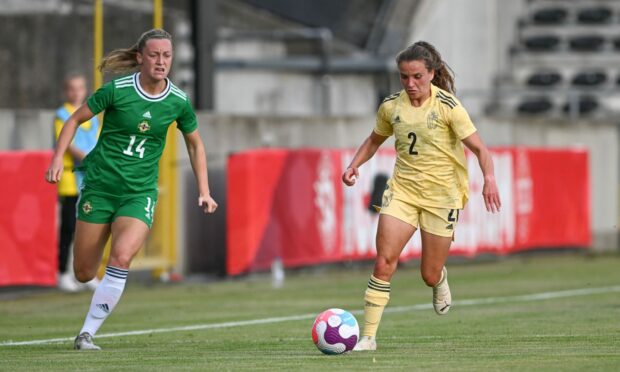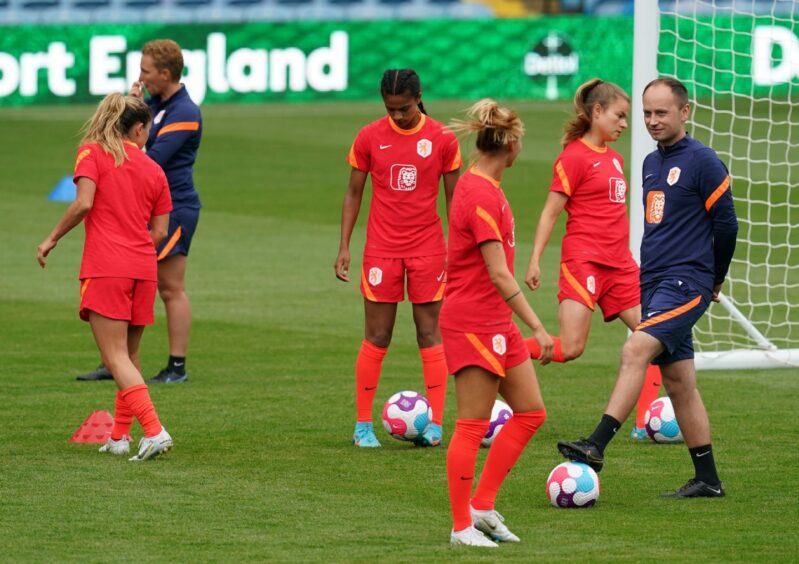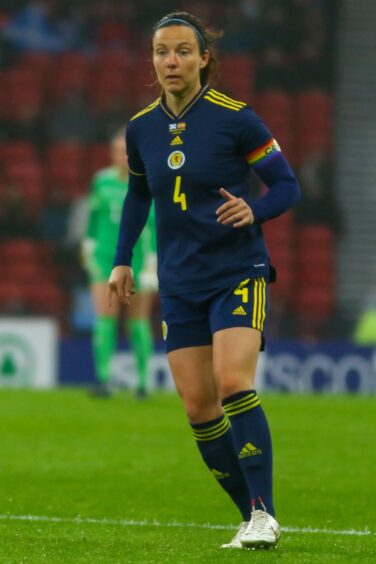Ahead of any major football tournament, new strips are always a serious topic of conversation.
With many national teams teaming up with manufacturers to launch bespoke women’s offerings, the Euros this summer will be the first time the women’s game has had so much kit hype surrounding it.
In 2019, the year of the last World Cup, arguments around women’s football kits being unmarketable, or there being a lack of demand for them, were put to bed when the United States Women’s National Team jersey outsold every other football top on the Nike website – men’s or women’s.
For the upcoming European Championship, brands have made sure they are ready for a surge in interest in the women’s game across Europe, with the merchandise to capitalise on the spike.
Not only are there a range of women’s national team match kits on sale which have been created across the major sportswear brands, but there are also added extras like training shirts, anthem jackets and casualwear on sale.
All of these are an opportunity for national associations and sports brands to showcase their athletes and attract lavish consumer spend on women’s football products.
Adidas were smart in their ploy to have the kits launched during the men’s international window just passed.
Germany, Spain and Belgium all donned the women’s kit designs – which are also available in men’s fitting shirts.
The idea of offering the women’s shirts to buy in a men’s fit seemed to confuse some people, but it is plausible male fans would want to support their women’s national team wearing the latest clobber.
Since I can remember, England have always seemed ahead of the curve when it comes to their commercial activities and promoting themselves.
While their Nike match kit is simple at a distance, the small details make it very classy and sharp-looking.
Their new vibrant warm-up T-shirts and other tournament-specific kit will no doubt continue to break sales records, especially if they start to build momentum as the tournament progresses.
Getting out of groups will be a struggle for Euros underdogs
The Euros are fast approaching and the final few international friendlies are being completed this week ahead of the real competition – which will begin at Old Trafford on July 6 when England take on Austria in the opening spectacle.
The tournament was held for the first time in 1984, when Sweden made history and won the inaugural event. Since then, there have only been three other winners: Germany, Norway and the Netherlands – all of whom will feature again this summer.
Europe’s elite nations account for a significant proportion of the world’s best and most successful teams.
Sweden are the side who enter the Euros as the highest-ranked participants, currently holding a FIFA World Ranking of two. They are closely followed by France, the Netherlands, Germany, Spain and England, who all sit in the world top-10.
Those six power houses will make it difficult for any of the other teams to advance out of the group stages, with only the top two teams in each of the four groups able to progress to the knockout stages.
However, in tournament football anything can happen and we can expect there will be at least one team which exceeds expectations.
At the last tournament in 2017, Austria found themselves in the semi-finals after a remarkable run in their first ever major tournament, and they have qualified again, but sit in a difficult group A pool with England, Germany and Northern Ireland.
Denmark were also a side who caught many by surprise as they went one better than Austria and finished as runners-up to the Netherlands last time around.
Their captain and all-time leading goal scorer is Chelsea’s Pernille Harder and, although she will be the most well known player to the British fans watching on, Denmark are another side who quietly have the quality throughout to cause a few teams problems.
They sit in group B with the task of having to overcome Germany, Spain and Finland if they want to emulate their success from previous Euros.
Holders the Netherlands will be hoping their historic and memorable orange army will once again help them march through to the latter stages. The iconic pictures from 2017’s final will be a vivid memory for a squad which still largely remains intact.
They have swapped their native Dutch head coach, Sarina Wiegman, with Englishman Mark Parsons – who took on the role just under a year ago after his club successes in America.
They will take on Sweden, Switzerland and Portugal in group C.
Portugal are a late inclusion for the tournament after the decision was made to disallow Russia from competing.
The final group doesn’t get any easier as France and Italy are joined by Belgium and Iceland.
France are considered another one of the favourites, but they have a history of prematurely exiting in the knock-out rounds. Despite a few notable names missing in their recently-announced squad, many of their key players play for Champions League-winning Lyon, which makes them one of the teams who will arrive with great expectations.
Scotland duty timing is difficult
The return to Scotland duty – and such an important game against Ukraine – this week in the middle of most players’ summer break was not the most fortuitous timing.
However, during the camp, there has been a calmness and a unified spirit which we feel can drive us to World Cup qualification.
Performances and results remain imperatively important and will continue to be how the team is assessed, but these past few camps have been some of the most exciting and demanding I have known in a Scotland shirt.


